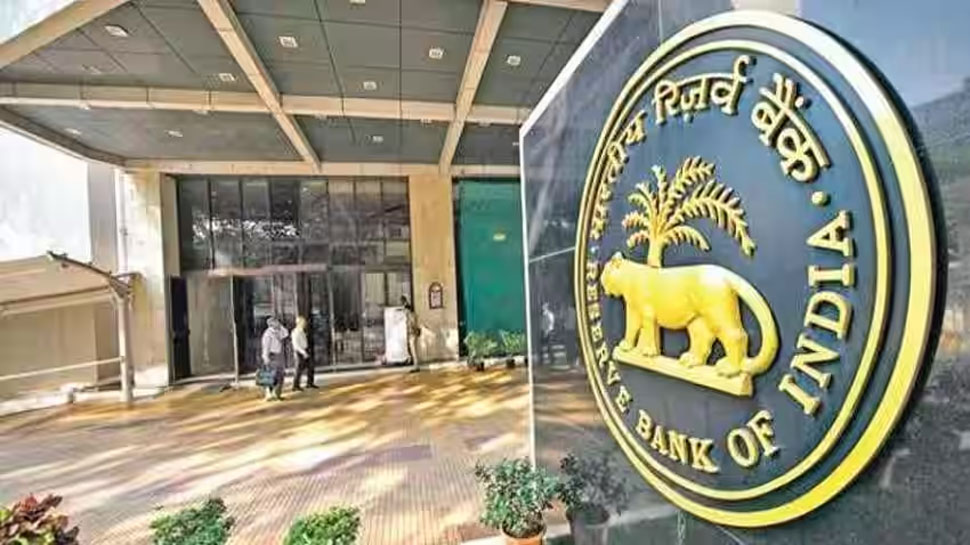Business
RBI Issues Guidelines On Authentication Mechanisms For Digital Payment Transactions
)
New Delhi: The Reserve Bank of India (RBI) on Thursday released draft guidelines on the authentication mechanism framework for digital payment transaction authentication that will come into effect from April 1, 2026.
The Central Bank said the feedback from the public has been examined and suitably incorporated in the final directions.
The directions focus on encouraging introduction of new factors of authentication by leveraging upon technological advancements.
The framework, however, does not call for discontinuation of SMS-based OTP as an authentication factor.
The aim is also to enable issuers to adopt additional risk-based checks beyond the minimum two-factor authentication based on the fraud risk perception of the underlying transaction and facilitate interoperability and open access to technology, along with delineating the responsibility of Issuers.
The draft guidelines also mandate card issuers to validate AFA in non-recurring cross-border CNP transactions whenever such a request is raised by the overseas merchant or acquirer.
The RBI says that all digital payment transactions in India are required to meet the norm of two factors of authentication. While no specific factor was mandated for authentication, the digital payments ecosystem has primarily adopted SMS-based One Time Password (OTP) as the additional factor.
“All digital payment transactions shall be authenticated by at least two distinct factors of authentication, unless exempted. Issuers may, at their discretion, offer a choice of authentication factors to their customers in compliance with these directions,” according to the RBI.
“It shall be ensured that for digital payment transactions, other than card present transactions, at least one of the factors of authentication is dynamically created or proven, i.e., the proof of possession of the factor, being sent as part of the transaction, is unique to that transaction. The factor of authentication shall be such that compromise of one factor does not affect reliability of the other,” it further added.
Also, system providers and system participants will offer authentication or tokenisation service that is accessible to all the applications and token requestors functioning in that operating environment for all use cases and channels or token storage mechanisms.
Business
Best Buy’s holiday sales disappoint, but retailer shows progress in growing profits

Sign at the main entrance to a Best Buy store in Venice, Florida.
Erik McGregor | Lightrocket | Getty Images
Best Buy posted mixed results on Tuesday as the retailer’s holiday-quarter sales declined and missed Wall Street’s expectations, but its earnings topped estimates as it showed improved profitability.
For the current fiscal year, the consumer electronics retailer expects revenue to range between $41.2 billion and $42.1 billion, compared with $41.69 billion in the most recent fiscal year. It expects adjusted earnings per share to range from $6.30 to $6.60, after it reported adjusted earnings per share of $6.43 for the previous fiscal year.
Best Buy anticipates that comparable sales, a metric that tracks sales online and in stores open at least 14 months, will range from a decline of 1% to an increase of 1%.
In a news release, CEO Corie Barry said demand for consumer electronics remained lackluster during the gift-giving season, but the company’s internal data indicates that Best Buy’s market share in the industry “was at least flat.”
Chief Financial Officer Matt Bilunas said in his own statement that the company is “excited about the momentum in our business.” But he added that company leaders “expect to continue to navigate a mixed macro environment.”
Shares jumped more than 10% in premarket trading.
Here’s how the retailer did for the fiscal fourth quarter compared with what Wall Street was expecting, according to a survey of analysts by LSEG:
- Earnings per share: $2.61 adjusted vs. $2.47 expected
- Revenue: $13.81 billion vs. $13.88 billion expected
In the three-month period that ended Jan. 31, Best Buy’s net income jumped to $541 million, or $2.56 per share, from $117 million, or 54 cents per share, in the year-ago quarter. Excluding one-time expenses, including charges for its health business, Best Buy reported adjusted earnings per share of $2.61.
Revenue decreased from $13.95 billion in the year-ago quarter. Yet on an annual basis, revenue rose to $41.69 billion from $41.53 billion in the prior fiscal year. Best Buy’s annual revenue declined in the three previous fiscal years.
For about four years, Best Buy has pinned its slower sales on more price-sensitive U.S. consumers, a slower housing market and less tech innovation. All of those factors have caused some shoppers to delay tech purchases, particularly big-ticket items like new refrigerators. Higher tariffs have also added costs for Best Buy, since many consumer electronics are imported.
Comparable sales dropped 0.8% in the fourth quarter as the company saw softer sales of appliances and home theaters. Those declines were partially offset by sales growth in computing and mobile phones, the company said.
Best Buy has leaned into more profitable businesses, including selling ads and offering more merchandise through its third-party marketplace, which launched in August. Barry said in the company’s news release that Best Buy’s advertising partners nearly doubled compared to the prior year and she said the retailer has significantly increased the number of available products on the marketplace.
The company has a scheduled earnings call at 9 a.m. ET.
Business
US-Iran War: India Has Over 50 Days Of Crude Oil Stocks, In ‘Comfortable Position’: Report

Last Updated:
The Indian government has over 50 days of crude oil stocks and is in a ‘comfortable position’. They remain cautiously optimistic about diversification.


Crude Oil
US-Iran War: The Indian government has confirmed that the country has over 50 days of crude oil stocks and is in a ‘comfortable position’, according to a Moneycontrol report.
The MC report added that the government continues to be cautiously optimistic that it is capable of taking domestic steps and diversifying as the need arises.
The government’s comment plays down any concern arising over India’s energy security in crude oil amid the rising tension in the Middle East and complete closure of the Strait of Hormuz.
Global crude shipments moving through the Strait of Hormuz have nearly ground to a halt, disrupting close to 86% of the usual east–west oil traffic and rattling energy markets worldwide.
According to maritime intelligence firms Windward and Kpler, the strategic chokepoint remains technically open, but vessel movement has slowed to a fraction of normal levels. On March 1, just three oil tankers transporting a combined 2.8 million barrels transited the strait — a steep 86% drop compared to the 2026 daily average of 19.8 million barrels.
By early March 2, activity had thinned further, with only one small tanker and a single cargo vessel recorded moving through the primary shipping lanes, underscoring the scale of the disruption.
Brent curde oil futures were also trading over USD 80 per barrel for the past two days, with anticipation to rise in three digit soon.
India is highly dependent on other countries for its crude oil requirements, with imports accounting for around 88–90 per cent of total demand. In 2024, India surpassed China as the world’s largest oil demand driver, driven by rising fuel consumption, particularly in transportation.
So, what happens if there is a large-scale disruption in crude oil supply? Is India prepared to handle such a situation, and for how long?
India has a dedicated special purpose vehicle called Indian Strategic Petroleum Reserves Limited (ISPRL), which is responsible for maintaining petroleum reserves for such emergencies.
The Government of India decided to establish 5 million metric tonnes (MMT) of strategic crude oil storage across three locations.
ISPRL functions under the Ministry of Petroleum and Natural Gas, and the project was executed by Engineers India Limited (EIL). The strategic reserves are situated in Visakhapatnam, Mangalore, and Padur (near Udupi).
These crude oil storages are built in underground rock caverns along both the eastern and western coasts of India. Crude oil from these caverns can be supplied to Indian refineries through pipelines or a combination of pipelines and coastal transport.
Underground rock caverns are considered one of the safest methods for storing hydrocarbons.
Follow News18 on Google. Join the fun, play games on News18. Stay updated with all the latest business news, including market trends, stock updates, tax, IPO, banking finance, real estate, savings and investments. To Get in-depth analysis, expert opinions, and real-time updates. Also Download the News18 App to stay updated.
March 03, 2026, 16:14 IST
Read More
Business
Gas and oil prices soar and shares tumble as crucial shipping lane threatened

Iranian official threatens to “set fire” to any ships passing through the Strait of Hormuz.
Source link
-

 Politics5 days ago
Politics5 days agoWhat are Iran’s ballistic missile capabilities?
-

 Business7 days ago
Business7 days agoHouseholds set for lower energy bills amid price cap shake-up
-

 Sports1 week ago
Sports1 week agoTop 50 USMNT players of 2026, ranked by club form: USMNT Player Performance Index returns
-

 Politics5 days ago
Politics5 days agoUS arrests ex-Air Force pilot for ‘training’ Chinese military
-

 Sports5 days ago
Sports5 days agoSri Lanka’s Shanaka says constant criticism has affected players’ mental health
-

 Business7 days ago
Business7 days agoLucid widely misses earnings expectations, forecasts continued EV growth in 2026
-

 Sports1 week ago
Sports1 week agoSouth Africa thrash India by 76 runs in T20 World Cup Super 8 – SUCH TV
-

 Fashion6 days ago
Fashion6 days agoNew Zealand’s apparel imports steady at $1.2 bn in 2025












